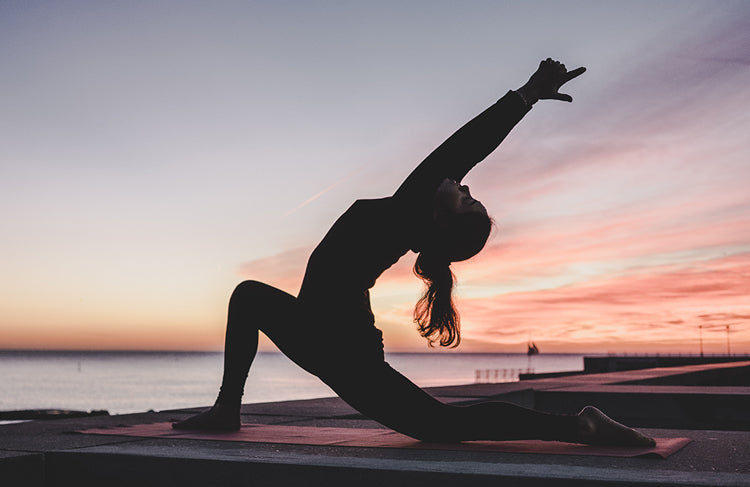
Yoga goes beyond postures and asanas. It’s an ancient method to help connect the mind, body and spirit. At a time like this when we feel our anxiety rising and restlessness flaring more than usual, let’s make yoga a part of our everyday routine so that we not only feel stronger physically but also emotionally.
Research suggests that yoga helps modulate stress response systems, thereby reducing the heart rate and lowering blood pressure. Breath is an important element of our yoga practice. Each asana must be in sync with our breath as every posture is accompanied by an inward or outward breath. Sometimes teachers even encourage their students to use the ujjayi breath (also know as ‘the ocean breath’) during practice.
There’s a reason why in yoga we’re asked to hold a pose. Staying still for a few minutes allows us to go deeper into a pose as we breathe normally. The more we deepen into a pose, the quieter our mind gets. It’s like meditation in motion. By the end of the session, as we lie down for shavasana, all the chatter in the mind dissolves and we feel grounded by the experience. Like anything in life, as we continue to give time to our practice, the same postures that were difficult to hold at first seem effortless later on.
Yoga plays a significant role in developing our meditation practice too by strengthening our back muscles so that we can sit in meditation for a longer duration. Yoga helps evoke the relaxation response, allowing both the body and mind to feel relaxed and at ease. Through breathwork, meditation, movements, and relaxation, yoga can help restore an inner sense of personal balance so that we feel more centered and grounded.
Join Yogi Arun, a well-known yoga teacher with over 23 years of teaching experience for a FREE yoga session on the 9th of May at 5 pm. Learn techniques to help release stress and find your inner calm during this lockdown period..

Comments (0)
Back to News